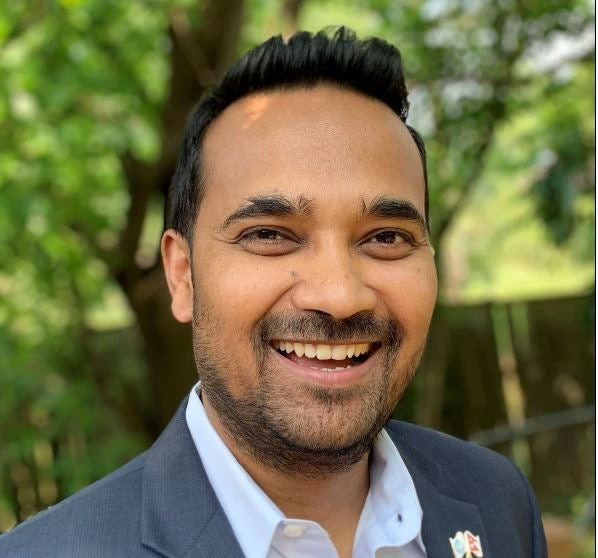
“One of the reasons we do not share data in machine readable format is because we worry that someone will manipulate it,” explained one official at a regional workshop on “Building Open Data Ecosystems” in Nairobi, Kenya, a few months ago. This sentiment was echoed by many of the 22 officials from 10 African countries who participated in the workshop jointly organized by the African Development Bank (AfDB), the World Bank Group Academy’s Development Data Program, and Open Institute Africa, a civil society organization based in Kenya in December 2023.
By the end of the week-long program, a shift in perspective had unfolded. The officials, initially cautious, emerged with a newfound enthusiasm for the potential of open data to help enable more targeted and effective use of scarce development resources.
Figure 1. Map of overall SPI (Statistical Performance Indicators) scores for 186 countries

Governments around the world have taken important steps toward making public data more accessible and comprehensive in the last decade or so. Despite these efforts, the 2022 Statistical Performance Indicators reveal that most African countries still face significant challenges in closing data gaps and improving data discoverability and usability.
Meanwhile, the technology landscape is evolving at an unprecedented pace, making the data governance agenda even more complex. Artificial Intelligence (AI), including Large Language Models (LLMs), is expanding the frontier of what data can achieve in the realm of development. But to harness the full potential of AI, countries must go beyond the long-standing goal of making data machine-readable. Now they should also ensure that data is machine-understandable, a point underscored by Jim Tebrake, Deputy Director of the Statistics Department at the International Monetary Fund, during the recent Data and AI for Sustainable Development Conference (“Data for AI”). Moreover, AI is not merely a new “user” of data – it also offers new ways to improve the quality, comprehensiveness, and accessibility of data, and do it more efficiently (“AI for Data”).
Considering all of this, the AfDB's Data Innovation Lab and the World Bank Group Data Academy have formed a strategic partnership aimed at offering sustained support to African countries in strengthening data governance, data management, and data dissemination via concerted upskilling programs. Additionally, the partnership is committed to developing the technical expertise of researchers, academics, civil servants (such as the staff of National Statistical Offices), and other stakeholders across the data lifecycle, while also increasing the adoption of new technologies such as artificial intelligence (AI) to fully exploit the potential of alternative data sources, and thereby accelerating data-driven development and innovation.
“Through our collaboration with the AfDB’s Data Innovation Lab, we hope to empower governments across Africa to unlock the promise of better data for better lives in the age of artificial intelligence,” said Haishan Fu, World Bank Chief Statistician and Director of Development Data Group.
The Data Innovation Lab, a flagship initiative of the AfDB, helps African countries leverage data through capacity building, partnerships, data production, and the use of algorithms to improve government decision making. Under the guidance of the World Bank Chief Statistician, the World Bank Group Academy’s Development Data Program works to build capacity for data-driven analysis and decision making among government agencies, researchers, and think tanks by leveraging the World Bank’s vast repository of data and expertise.
“Digitalization is a critical next step for Africa’s economies to further embrace as both a major driver of and beneficiary of data innovation. Through our collaborative efforts with the World Bank, we envision a future in Africa where each nation, institution, and community are empowered by accurate and reliable information, building a strong foundation for progress,” said Dr. Samson Omotosho Babatunde, Director of the AfDB’s Statistics Department.
Since December 2023, the AfDB’s Data Innovation Lab and the WBG Data Academy have collaborated with officials from African countries through several joint engagements. Beyond the workshop in Kenya, these so far include:
1) Adaptation and implementation of a data diagnostic toolkit as a follow-up to a Nairobi workshop to strengthen data governance in Mozambique;
2) a regional workshop aimed at enhancing the data-driven decision-making skills of 40 technical staff from National Statistical Offices (NSOs) and Ministry of Health (MoH)/health agencies across 13 countries; and
3) an Innovate Africa Symposium, planned for October 2024, with the goal of engaging policymakers to strengthen data governance in the region.
These collaborative activities are aligned with and support the shared aspirations of multilateral development banks for closer cooperation.
As observed in the Nairobi workshop, not everyone is convinced that the benefits of greater data availability always outweigh the perceived risks. It is true that as technology continues to advance, countries need robust safeguards and measures to mitigate potential harms, such as those related to data privacy or the spread of misinformation. If development stakeholders can come together to design thoughtful approaches to these thorny issues, the gains from greater access to and use of data could be immense. The collaboration between the AfDB's Data Innovation Lab and the World Bank Group Data Academy is meant to inspire and support such policy discussions.
 Participants at the “Building Open Data Ecosystems” workshop in Nairobi, Dec. 2023. Photo: Open Institute Africa
Participants at the “Building Open Data Ecosystems” workshop in Nairobi, Dec. 2023. Photo: Open Institute Africa



Join the Conversation